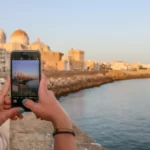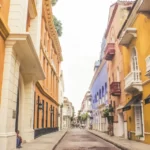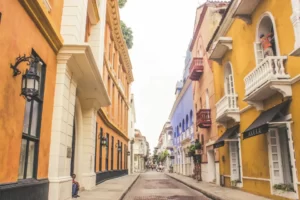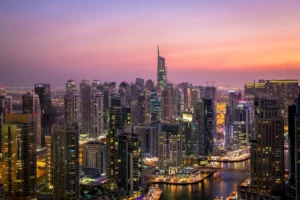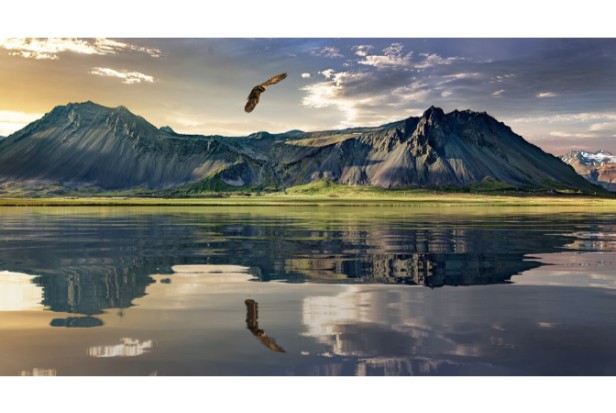
It can be difficult to decide when is the best time to travel to New Zealand. Each of New Zealand’s four distinct seasons has its own special benefits and drawbacks for travelers. To assist you in selecting the ideal time of year to visit New Zealand, we are going to discuss the benefits and drawbacks of each season.
There are four distinct seasons in New Zealand, and each one has its own distinct appeal for travelers. Spring brings out a variety of blossoms, summer brings festivals, outdoor adventures, and heart-pounding activities, fall brings vibrant foliage, and winter brings powdery snow for an epic ski season.
Best Time To Visit New Zealand
Because New Zealand is in the southern hemisphere of the earth, its seasons are the opposite of those of most of the planet. September through May is the ideal time to visit New Zealand. While it’s winter in the United States in December, it’s summer in New Zealand. Four seasons could very well occur to you in a single day; this is quite common. In reality, any time is a good time to visit New Zealand. Every month of the year, New Zealand has something special to offer. The month-wise breakup of the experience will have in New Zealand are:
December To February – Summer Season
There are many reasons why summers in New Zealand are hospitable and warm. First of all, the weather is absolutely ideal for exploring, and cities are teeming with people. There is a lively and enjoyable atmosphere all around. The ideal weather for New Zealand is in February. Additionally, February is the month when it is most likely that you will find better lodging at lower prices.
Temperature: The month of January typically ranks among the hottest in New Zealand, with highs of up to 30 degrees Celsius. The summertime average temperature in New Zealand typically ranges from 20 to 25 degrees Celsius.
Weather: The people of New Zealand experience months full of sunshine during these times that are typically associated with winter and snow in the majority of other nations.
The days are longer and the nights are shorter during these months because the sun can be seen for more than 12 hours each day.
Why to visit now: For visitors who want to escape harsh winters and celebrate Christmas by swimming in a lake, the warm weather and sunny climate are ideal. The best thing about summer in New Zealand is that you can buy fresh kiwis and eat them while lounging around and soaking up the sun. Kiwis grown in the summer are extremely juicy and have an unmatched flavor.
In the summer, New Zealand transforms into a warm paradise with breathtaking views and bright sunshine all around. Mountains, lush valleys, and crystal-clear streams combine to create the ideal landscape, which is pure joy to the eyes. The weather also increases the enjoyment of beachgoing, participating in water sports, and other activities like paragliding, hiking, trekking, biking, and cycling. When nature is at its most beautiful, you can appreciate it to the fullest.
Know before you visit: The heat and the warm breeze can make traveling around the country a little challenging for tourists, but they also make outdoor activities more enjoyable. Additionally, it can get a little crowded since it is the busiest travel period.
Significance: A lot of marathons, races, and triathlons are held in New Zealand in February, allowing visitors to experience the local culture and learn more about the country. People travel to New Zealand just to compete in some of these marathons because they are so well-known worldwide.
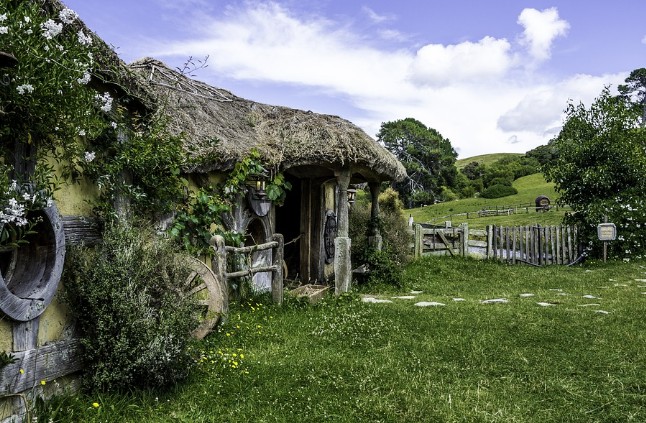
Four Seasons’ Events & Festivals
Spring
September – November
Spring is a wonderful time to be in New Zealand with warm sunny days, uncrowded trails and the countryside bursting into life. The countryside is covered in vibrant wildflowers, and newborn wildlife, such as playful seal pups and lambs running amok, is abundant. Both here and at campgrounds across the nation, hotel rates are significantly lower than they were in the summer, and availability is also much better. With the spring sun melting the winter snowfall and glaciers, rivers are at full flood and waterfalls are at their most spectacular so it’s a wonderful time to be seeing them in Fiordland for example.
Events & Festivals
Hawkes Bay Food & Wine Classic: November
Toast Martinborough: November
Toast of Auckland: November
Summer
December to February
People travel from all over the world to New Zealand in the southern hemisphere summer to view the country under a clear sky. This is a good time to visit New Zealand because it would be nice to escape the winter back home.
With comfortable daytime highs ranging from 21 to 24 degrees Celsius, now is a great time to take a picnic to the beach. Making the most of the enormous variety of amazing outdoor activities for which the nation is renowned, including sailing, kayaking, cycling, and hiking, is also a good idea right now.
Events & Festivals
Marlborough Wine & Food Festival: February
Napier Art Deco Weekend: February
Autumn
March – May
The ideal time to visit New Zealand, in the opinion of many, is in the fall. It can be the ideal time to travel to New Zealand because there are still plenty of long, sunny days to enjoy, fewer tourists to deal with at popular scenic locations, better hotel and campsite availability, and, perhaps best of all, lower prices than the high season.
The warm, still autumn days in New Zealand are ideal for going outside and exploring. With deeply shadowed mountains and photogenic ochre fields, the landscape comes to life in the autumnal light. You won’t find a blaze of autumnal fall foliage in the forests, with the exception of the Central Otago region on the South island, but the numerous vineyards do look lovely.
Events & Festivals
Hokitika Wildfoods Festival: March
Bluff Oyster Festival: May
Winter
June – August
Wintertime temperatures in New Zealand don’t drop as much as they do at home, especially in the North Island where average daytime highs in Auckland are 14 or 15 degrees Celsius, compared to 7 or 8 degrees Celsius in London, for instance.
The snowfields near Queenstown and Wanaka are crowded with joyful skiers and snowboarders as New Zealand’s southern mountains are covered in snow.
Events & Festivals
Queenstown Winter Festival: June
Wellington on a Plate: August
New Zealand Geography Overview
In reality, New Zealand is a collection of roughly 600 islands in the south-western Pacific Ocean. New Zealand is a relatively small nation, stretching 1,600 kilometers (1,600 miles) from the top of North Island to the bottom of South Island, the two main islands.
As the two largest and busiest islands in New Zealand, the North and South Islands will be the subject of this article.
Sand beaches, mountain ranges, fjord-like sounds, rolling green hills, glacial lakes, and valleys dotted with vineyards are just a few of the topographic features found on the islands.
New Zealand Weather
It’s crucial to remember that different temperatures and weather patterns accompany such variations in the terrain. With the exception of true tropical climates, New Zealand’s climate can be characterized as being incredibly diverse. You can find pretty much anything from dry to subtropical conditions there.
You can experience each of New Zealand’s four seasons in a single day, so be ready!
New Zealand’s weather is generally mild, and the change from winter to summer is typically only about 10°C in any given region, despite how unpredictable the country’s climate can be.
In no region of the country does the temperature regularly fall below or rise above freezing (32°F or 0°C). Tropical storms do not frequently hit New Zealand due to the low temperature range and lack of extremes.
The fact that it is situated on two significant tectonic plates does cause it to experience a LOT of earthquakes.
In New Zealand, What Kinds Of Temperatures Can I Anticipate?
This is a tough question to answer because it really depends on where in the country you plan to travel.
It would kind of be like asking, “In January, what is the weather like in Europe?” The climate in Scotland will be very different from that in Barcelona. Or, “What’s the weather like in the United States in April?” Compared to Seattle, Miami will have a very different response.
For instance, the subtropical Bay of Islands in Northland experiences more mild weather than the mountain towns on the southernmost tip of the South Island.
While it varies quite a bit throughout the country, here are the average daytime temperatures, according to the New Zealand tourism guide:
Spring:
- September, October, November
- 61 – 66°F (16 – 19°C)
Summer:
- December, January, February
- 68 – 77°F (20 – 25°C)
Autumn:
- March, April, May
- 62 – 70°F (17 – 21°C)
Winter:
- June, July, August
- 53 – 61°F (12 – 16°C)
What To Pack For New Zealand In The Summertime:
- bug repellant (solids are the way to go, because sandflies really suck)
- activewear
- a light jacket or fleece
- rain jacket
- good walking/hiking sandals (We prefer Chacos instead of hiking boots as they are less bulky and are good for walking through water)
- reef safe sunscreen
- swimwear
If you want to find more interesting and beautiful places to vise, welcome to check our best-time-visit guide below!
- Best Times to Visit Chicago – What To Prepare – On The View
- Best Time to Visit Peru – Travel Guide In 2022 – On The View
- Best Time to Visit & Travel to Costa Rica – On The View
- Best Time to Visit Guatemala – November to April – On The View
- Best Time to Visit Panama – Everything You Should Know – On The View
- Best Time to Visit the Philippines – What You Should Avoid – On The View


